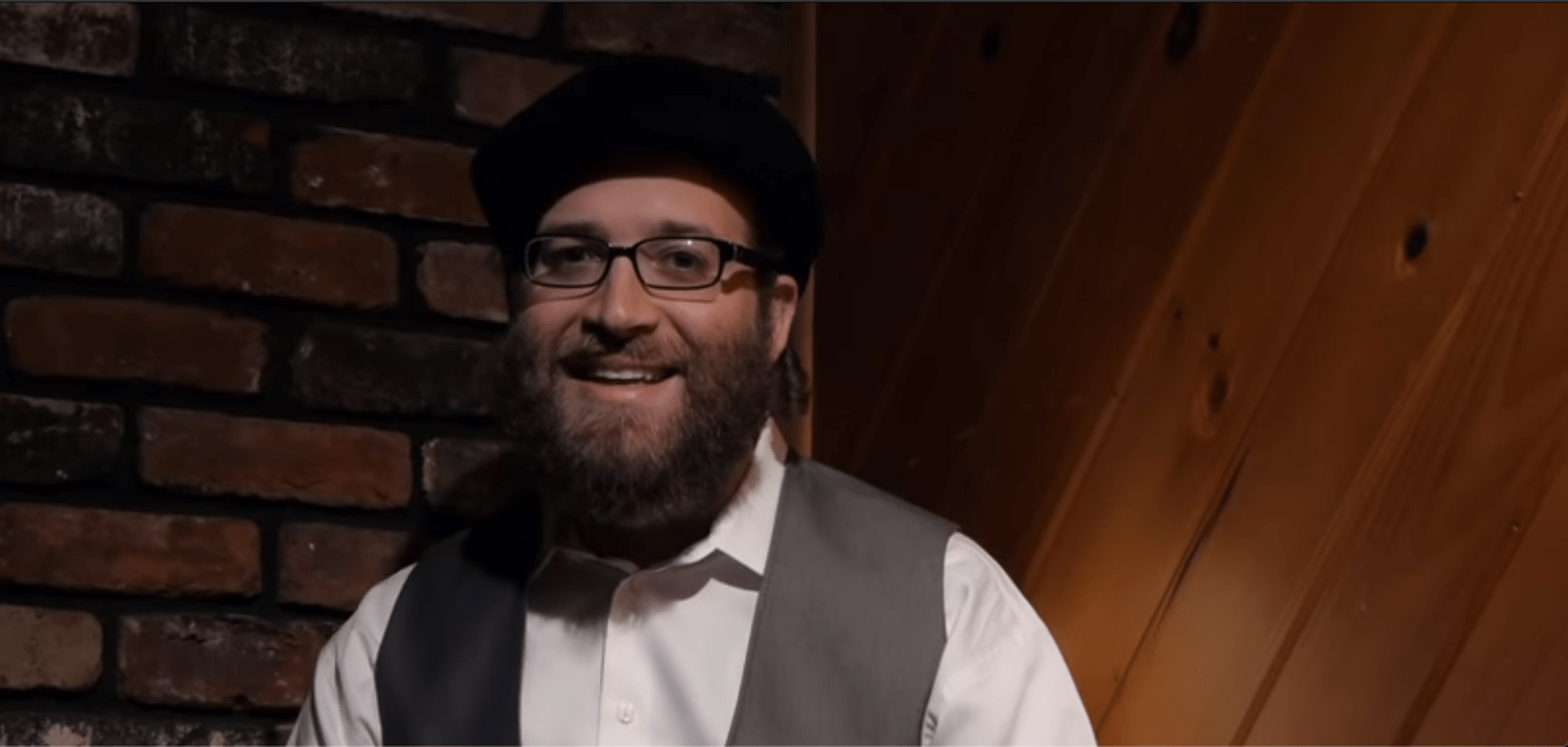
Meet Yoely Lebovits, The Satmar Hasidic Comedian
Although Jews are known for their humor, most people assume that Hasidim don’t have a funny bone in their body. This assumption isn’t without cause: Hasidic Jews generally don’t smile in public. Enter Yoely Lebovits, Satmar Hasid, and the first boy in his community to be named after the rebbe. (News of the Satmar rebbe’s passing spread moments before his bris.) A frequent smiler and causer of smiles, Lebovits is a professional comedian or a “badchen,” which literally means “joker.” Born in Williamsburg, Brooklyn, after his parents got divorced Lebovits moved around the Northeast quite a bit while he was a kid. He turned to comedy in his day to day life “out of necessity” to smooth out the complicated parts of his childhood.
Lebovits has been privileged to witness Hasidim’s animation. He states, “nobody saw more laughter on Hasidim than me.” Smiles aren’t overtly expressed on streets since there is an idea of modesty – not drawing attention to one’s self. “They know how to laugh and they love to laugh.” Then again, Lebovits acknowledges that he has come across members of his community raised in homes where laughter was rare.
He believes this dourness stems from the traumatic aftermath of the Holocaust. Lebovits’s comedy is a form of therapy in these cases, as he has found a way to lighten up even the most somber homes. Apparently, it is a common problem that the grape juice bottle top gets lost by the end of the Shabbos meal in many Hasidic homes. This lost cap can trigger disproportionate anger in some of these fathers. To counter this tense moment, Lebovits wrote a song for lost bottle caps, and it caught on in the community. Now at the end of the meal, when anger could erupt, the family members sing the bottle cap song, and laughter ensues.
Lebovits started out with humor being a hobby, having no thought as to how far he could take it, until one day, someone paid him for a spontaneous, stand-up performance; from there an international career was born. Over the course of 22 years, he has built up a large following. He is now performing all over the US as well as Europe and Africa.
While professional comedy wasn’t always Lebovits’ dream, it grew on him as he matured. He felt that he could unite people across different communities through the telling of jokes. “[Comedy is] an international language, and I love to connect.” This is what fuels his drive to perform in places that are not most seemingly comfortable for a Hasidic Jew like himself. Although much of his content is geared toward the Hasidic and frum world, Yoely can engage secular and non-Jewish audiences too.
For example, to a non-Jewish crowd, one of his bits is that he was once asked why Hasidim only wear black and white. He explained, “We always try to connect to our roots and our sources, and if you look at old photos, you’ll see that they’re all in black and white.” Lebovits’ comedy is an emulsifier that allows people to “cross that bridge, crack the ice, and have a good laugh together,” despite their differences. One of the places he has helped to raise spirits was on the streets of Morocco by making a kumzits for Muslims attending a wedding. He encouraged the men to dance. It had made such an impact on them that they eagerly invited him to visit them whenever he’s in the area.
“Most encounters I’ve had were very positive and very beautiful,” even from the most frum rabbis, Lebovits says. Within every successful career, though, there are “extreme factions…and sometimes they have the pen.” This was an experience he had in London when called for a job; on many synagogues negative reviews were posted about him. A few people may have opposed his work but the community’s rabbis were deeply apologetic following the incident and gave him encouragement to continue. And with thousands of adoring fans around the world and online, Lebovits plans too!
If you found this content meaningful and want to help further our mission through our Keter, Makom, and Tikun branches, please consider becoming a Change Maker today.








2 comments
Sort by
Hassidic Jews don’t smile in public?
I don’t think that’s true! For Chabad hassidim, and Breslav, it’s exactly the opposite!!
Have you seen them dance and sing in the streets in Israel? 🙂
For the average ultra-chasidic Jew walking around NYC it’s true and Yoely agreed and explained why.